Africa’s Commodity Opportunity in an Unsteady Global Market
The global commercial landscape is currently characterised by a significant degree of flux. Rising tariffs, simmering trade disputes, and the ripple effects of assertive executive actions, particularly from major economies like the United States, have injected considerable unsteadiness into international markets. Supply chains, once considered immutable pathways of global commerce, are being re-evaluated, and traditional trading relationships are under scrutiny. Yet, within this climate of uncertainty lies a potent opportunity for the African continent to assert a more significant presence at the global commercial table, leveraging its vast wealth in essential commodities.
Africa has long been recognised as a storehouse of the world’s natural resources. From fertile agricultural lands yielding vital food crops to substantial reserves of energy resources and a geology rich in critical minerals, the continent’s endowment is undeniable. However, translating this potential into tangible economic power and influence on the global stage requires strategic navigation, particularly now, as established trade norms are being challenged. The current global volatility, while presenting risks, also forces diversification and resilience, potentially opening doors for African producers who can offer reliability and scale.
Harnessing the Bounty: Africa’s Diverse Commodity Portfolio
Africa’s commodity strength lies in its diversity, spanning agriculture, energy, and minerals:
- Agriculture and Foodstuffs:The continent is a major global supplier of key cash crops like cocoa (Côte d’Ivoire, Ghana), coffee (Ethiopia, Uganda), tea (Kenya), cashews (Côte d’Ivoire, Tanzania), and cotton. Beyond these traditional exports, Africa possesses enormous potential to scale up the production of staple foods, fruits, and vegetables, not only for export but crucially for ensuring food security across its own rapidly growing population. As global food supply chains face disruptions due to climate change and geopolitical tensions, reliable and diverse agricultural producers become increasingly valuable. Africa can position itself as a solution provider, though this requires significant investment in modern farming techniques, irrigation, storage, and logistics.
- Energy Resources: Africa holds substantial reserves of oil and natural gas (Nigeria, Angola, Algeria, Libya, and newer players like Mozambique and Senegal). While the global energy transition is underway, these resources will remain vital for decades, providing crucial export revenue and energy security. Simultaneously, Africa possesses unparalleled potential in renewable energy – vast solar irradiance across the Sahara and Sahel, significant hydropower potential (Congo River, Nile River), wind power opportunities along coastlines and rift valleys, and geothermal resources. Developing these not only serves domestic needs but positions Africa as a future green energy exporter, potentially through green hydrogen production or direct electricity transmission.
- Minerals and Metals: This is perhaps where Africa’s strategic importance is most acute in the current era. The continent holds a dominant or significant share of the global reserves of minerals critical for both traditional industries and the green energy transition. This includes:
- Cobalt: Primarily from the Democratic Republic of Congo (DRC), essential for electric vehicle (EV) batteries.
- Platinum Group Metals (PGMs): Dominated by South Africa, vital for catalytic converters and hydrogen fuel cells.
- Manganese: South Africa, Gabon; crucial for steel production and increasingly important in battery chemistries.
- Bauxite: Guinea holds the world’s largest reserves, the primary source of aluminium.
- Copper: DRC, Zambia; fundamental for all electrical wiring, including EVs and renewable energy infrastructure.
- Graphite, Lithium, Nickel, Rare Earth Elements: Significant deposits exist across various African nations, all vital for modern technologies and batteries.
- Gold and Diamonds: Traditional mainstays for several economies (South Africa, Ghana, Botswana).
The global push towards decarbonisation and digitalisation is fundamentally dependent on many of these minerals, placing African nations in a position of considerable potential leverage.
From Potential to Power: Strategies for Success
Simply possessing resources is insufficient. To truly capitalise on the current global climate, African nations, individually and collectively, must adopt strategic approaches:
- Value Addition: The long-standing paradigm of exporting raw, unprocessed commodities needs to shift decisively. Processing minerals domestically (smelting, refining), transforming crops (grinding cocoa beans, roasting coffee, processing fruits), and developing petrochemical industries adds significant value, creates higher-skilled jobs, captures more revenue within Africa, and reduces exposure to volatile raw commodity prices. This requires the investment of permanent capital, not short-term funds, into processing facilities, technology transfer, and skilled labour development.
- Strengthening Intra-African Trade: While the (multitudinous) trading blocs within Africa have had provided some significant benefits to member countries, the African Continental Free Trade Area (AfCFTA) is a game-changer. By reducing tariffs and non-tariff barriers between African nations, AfCFTA aims to create the world’s largest free trade area by population. This fosters the development of regional value chains. For example, battery minerals mined in the DRC could potentially be processed in South Africa or Morocco, using energy generated in Zambia or Egypt, before being incorporated into products assembled in Kenya or Nigeria. This internal market reduces reliance on volatile external demand and enhances the continent’s collective bargaining power globally. As the World Bank has noted, AfCFTA has the potential to lift millions out of poverty and significantly boost intra-African trade, which currently lags behind other continents.
- Diversifying Trading Partners: While traditional partners in Europe, North America, and China remain important, the current global shifts encourage diversification. African nations should actively cultivate stronger trade relationships with other rapidly growing regions like South-East Asia, India, the Middle East, and Latin America. Offering a reliable source of critical commodities can be a powerful diplomatic and economic tool in forging these new alliances.
- Infrastructure Development: Realising the commodity potential hinges on overcoming significant infrastructure deficits. Permanent capital investment is critical in ports, railways, roads, energy grids, and digital connectivity to efficiently move goods from production sites to processing centres and export hubs. Public-private partnerships and targeted foreign direct investment (FDI) into permanent capital vehicles are essential enablers for the long-term development of infrastructure projects.
- Improving Governance and Transparency: Attracting the necessary investment and ensuring the benefits of commodity wealth are broadly shared requires strong governance, stable regulatory frameworks, contract enforcement, and transparency, particularly in the extractive industries. Initiatives like the Extractive Industries Transparency Initiative (EITI) play a vital role. Addressing corruption and ensuring political stability are prerequisites for long-term success.
The successful implementation of AfCFTA is perhaps the single most critical factor in this equation. It provides the framework for value addition and regional integration to flourish. An Africa fragmented into nation states or smaller trading blocs, exporting raw materials individually, remains vulnerable. A more integrated Africa, trading processed and semi-processed goods within a vast internal market, becomes a far more formidable player on the global stage. It allows for economies of scale, specialisation, and the development of robust African multinational corporations
.
Seizing the Moment
The current era of global trade uncertainty, marked by protectionism and shifting geopolitical alignments, presents formidable challenges. However, for Africa, it also illuminates a pathway towards greater economic self-determination and global influence. The continent’s rich endowment of agricultural, energy, and mineral commodities places it in a strategically vital position, particularly as the world navigates the green transition and seeks more resilient supply chains.
By focusing on value addition, aggressively implementing the AfCFTA to boost intra-continental trade, diversifying external partnerships, investing heavily in enabling infrastructure, and committing to good governance, Africa can transform its commodity wealth into sustainable economic development and secure a more prominent and influential seat at the global commercial table. The time for Africa to leverage its resource potential not just as a supplier of raw materials, but as a key player shaping global trade dynamics, is now. The shifting sands of global commerce may create unease elsewhere, but for a strategically aligned Africa, they can reveal solid ground upon which to build a more prosperous future.


